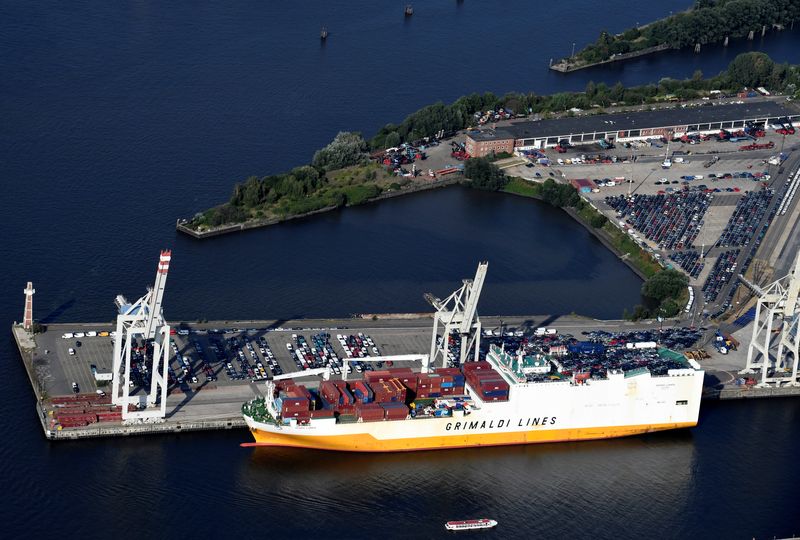BERLIN (Reuters) - German exports and imports rose unexpectedly in December, the statistics office said on Wednesday, as order books have remained full despite continued raw material bottlenecks.
"The shortage of supplies was a burden. Meanwhile, the export balance sheet looks surprisingly good," Thomas Gitzel, chief economist at VP Bank, said.
"The order books are full, so there is no shortage of commissions," the economist said, adding export growth should pick up sharply after the easing of supply problems.
At the same time, whether this happens in 2022 will also depend on how things develop in eastern Ukraine because Germany's export machinery can only function to a limited extent without oil, gas and metals from Russia, Gitzel said.
Seasonally adjusted exports rose 0.9% on the month to 117.0 billion euros ($133.58 billion), compared with a decline of 0.2% predicted by economists.
Imports jumped 4.7% to 110.0 billion euros, compared with an average forecast for a 1.5% decrease.
"The increase is the icing on the cake of a good export quarter. Full order books at industrial companies are also a good basis for further export growth," Alexander Krueger at Hauck Aufhaeuser Lampe Privatbank said.

On Friday, data showed German industrial orders grew more than expected in December thanks to a boost from stronger domestic demand.
($1 = 0.8759 euros)